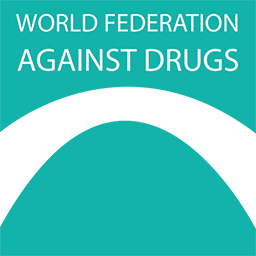My name is Cecilia Hajzler and I was born and lived in Serbia most of my life. Currently, for the past 2 years, I live and work in Bosnia and Herzegovina. After more than 20 years of addiction I started my recovery journey within a local community, in a recovery organization and have been in a long-term, stable recovery for 7 years. Since then, I have been involved in grassroots activities of recovery organizations in Serbia and Bosnia and Herzegovina.
Currently in NGO Celebrate Recovery my professional work is based on personal, lived experience of substance use disorder and recovery, but sharing my story is just an icebreaker that enables me to connect with people who seek help to recover. I have learned that it is necessary to continually improve my knowledge and skills through trainings and learning about examples of good practices in order to provide best service I can.
I will try to address recovery problem on two levels, first, grass roots level and lived experience of drug user and person in recovery and second, I will highlight what decision makers should keep in mind when considering effective measures to reduce illicit drug use.
When I think back about myself while I was using drugs, I see a hopeless, broken person who has lost her identity and all her human dignity. Recovery gave me a new chance, helped me to remember who I used to be before drugs and to dream who I could become. It is not just about being clean from substances, it is about rebuilding your entire life, learning how to live your life by solving problems and not running away from them, fighting your battles daily and learning from them, improving and growing through education and then using all you have become to help others find their recovery pathway.
Through our work we recognize that we as a civil society, can play an important role in addressing and countering the drug problem in Western Balkans, and we note that affected populations of recovered users and people in recovery should be enabled to play a participatory role in the formulation, implementation and evaluation of drug control policies and programmes, as well as provide relevant scientific evidence on recovery.
For the past 4 years we have been implementing a Regional project and we established Community Counseling Centers and free helplines in 3 countries (Bosnia and Herzegovina, Montenegro and Serbia).
According to our statistics and database of all people contacting Center and helpline we have provided 1533 services to people with substance use disorder related problems and their families.
As you can see on the slide 45% people contacting us are individuals aged 18-29 and it is very alarming that the number of minors seeking help has increased over the curse of the project. This indicates that early intervention programmes should be implemented.
We all know that family is a key factor in every person’s life and our statistics show that 54% of services have been provided to family members. Policy makers need to acknowledge a crucial role of family in recovery process and families need to be aware of the consequences and risks of drug use as well as the need of early and timely interventions.
Another very important fact is that 70%, vast majority of users of our services, are not currently engaged in any kind of treatment. 30% have never contacted any kind of service for their problematic drug use before and have never been in treatment. This also highlights the importance of community and grassroots organisations and their role in society which should have more support from the government and other key stakeholders.
After the UNGASS2016 and following the adoption of the UNGASS Outcome document, my organization has taken appropriate measures to comply with the standards and recommendations listed in the document and has involved, as appropriate, policymakers, parliamentarians, educators, other civil society organizations, the scientific community, academia, target populations, individuals in recovery from substance use disorders and their peer groups, families and other codependent people, as well as the private sector, in the development of recovery oriented systems of care.
In the end we recognize, as it is stated in the Outcome document that „drug dependence is a complex, multifactorial health disorder that can be treated through effective scientific evidence-based programmes, including community-based programmes“that we are providing. Through our work we are strengthening capacity to support recovery process that includes rehabilitation and social reintegration of individuals with substance use disorders, including assistance for effective reintegration into the labor market and other support services.


Leave a Reply
You must be logged in to post a comment.